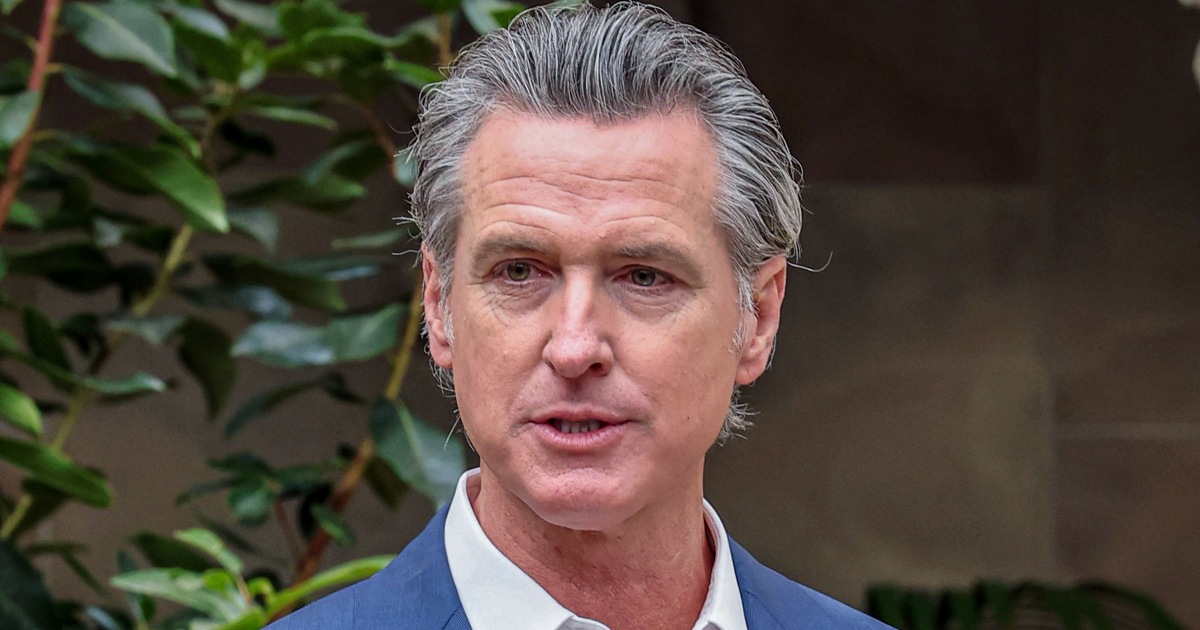Explosion in California Reveals Human Remains and Raises Safety Concerns
#explosion #california #safety #regulations #housing #homelessness #politics
Introduction
A large explosion at a Northern California fireworks warehouse has resulted in the discovery of human remains, according to investigators. The incident, which occurred in Yolo County, has sparked concerns and questions about the safety and regulations of fireworks storage.
Background
This is not the first time that an explosion involving hazardous materials has occurred in California. Just last year, a fertility clinic in Palm Springs was the target of a bombing, leaving one person dead and several injured. The suspect behind the bombing was later identified by the FBI, raising concerns about safety and security in the state.
Current Scenario
Following the latest explosion in Yolo County, the California Coroner's Office has been in contact with investigators and granted access to the site. This raises questions about the potential loss of life and the safety protocols in place for handling hazardous materials. The Trump administration has also been involved in a dispute with California over its management of high-speed rail, threatening to withhold federal funding.
Impact on the Community
The explosion at the fireworks warehouse has not only raised safety concerns, but also brought attention to the state's housing and homelessness crisis. Gov. Gavin Newsom recently signed a bill that will overhaul California's landmark environmental protection rules in an effort to address the housing shortage and resulting homelessness. This is just one of the many challenges facing the state, while also dealing with immigration raids and political clashes with the Trump administration.
Conclusion
The discovery of human remains after the explosion in Yolo County is a tragic reminder of the potential consequences of mishandling hazardous materials. It also sheds light on the ongoing challenges and disputes facing California, from housing and homelessness to immigration and political conflicts. As investigations continue and safety measures are reevaluated, it is clear that more needs to be done to protect the community and prevent similar incidents from occurring in the future.
About the People Mentioned
Gavin Newsom
Gavin Christopher Newsom, born October 10, 1967, in San Francisco, California, is an American politician and businessman currently serving as the 40th governor of California since January 2019. Raised in an established San Francisco family and educated at Santa Clara University, where he studied political science, Newsom began his political career in 1996 with an appointment to the San Francisco Board of Supervisors, after serving briefly on the city’s Parking and Traffic Commission. Newsom was elected mayor of San Francisco in 2004, becoming the youngest mayor in over a century. His tenure was notable for progressive initiatives, including directing the city to issue marriage licenses to same-sex couples in 2004, a pioneering move in the national movement for marriage equality. He also launched the Healthy San Francisco program, expanding access to healthcare for uninsured residents. After serving as mayor until 2011, Newsom was elected lieutenant governor of California, holding that office from 2011 to 2019. As governor, Newsom has focused on progressive policy areas such as gun control, criminal justice reform, environmental protection, affordable housing, and universal healthcare access. His administration has prioritized tackling homelessness, improving public safety, and expanding educational opportunities. Notably, he imposed an early moratorium on executions in California and led the state's response to the COVID-19 pandemic, implementing some of the strictest health measures in the country. Newsom survived a recall election in 2021 and was re-elected in 2022, maintaining significant political influence in California. Newsom is also known for his entrepreneurial background, founding the PlumpJack Group, which grew into a substantial hospitality and wine business. He is married to Jennifer Siebel Newsom, and they have four children. Diagnosed with dyslexia in childhood, Newsom has spoken publicly about overcoming learning challenges while pursuing a career in public service[1][2][3][5][6][7].
About the Organizations Mentioned
FBI
The Federal Bureau of Investigation (FBI) is a premier law enforcement agency in the United States, renowned for its role in protecting the nation from domestic and international threats. Founded on July 26, 1908, as the Bureau of Investigation, it was initially tasked with addressing land fraud and corporate malfeasance under President Theodore Roosevelt[1][2]. Over time, its mandate expanded significantly, particularly with the passage of the Mann Act in 1910, which allowed federal jurisdiction over certain moral offenses[1][4]. ### History and Evolution The FBI underwent significant transformation under J. Edgar Hoover, who became its director in 1924. Hoover implemented strict hiring standards and enhanced operational capabilities, transforming the agency into a robust investigative force[1][4]. The FBI's name was officially changed to the Federal Bureau of Investigation in 1935[5][6]. Throughout its history, the FBI has faced challenges, including concerns about potential abuses of power, but it has consistently demonstrated its value in national security and law enforcement[3][4]. ### Key Achievements The FBI has been instrumental in combating various crimes, including white-collar offenses, civil rights violations, and national security threats. Notable achievements include its role in enforcing the Espionage Act during World War I and its investigations into organized crime throughout the 20th century[2][4]. ### Current Status Today, the FBI is a sophisticated agency with over 37,100 employees, including special agents and professionals in various fields such as intelligence analysis and cybersecurity[5]. It operates in 55 field offices across the U.S. and has an international presence in 81 nations[5]. The FBI continues to evolve, addressing emerging threats like cybercrime and terrorism while maintaining its commitment to justice and integrity. ### Notable Aspects The FBI is known for its rigorous training programs at the FBI Academy in Quantico, Virginia, and its advanced forensic capabilities at the FBI Laboratory. Its work in business and technology includes
California Coroner's Office
The **California Coroner's Office** is a statutorily mandated agency responsible for conducting thorough and objective medicolegal investigations into sudden, violent, suspicious, or unattended deaths occurring within its jurisdiction. Its primary function is to determine the cause, manner, and circumstances of death, providing critical answers to families, law enforcement, insurance companies, and public health authorities. This investigative role is performed by sworn peace officers, including coroners and deputy coroners, who have powers defined under California Government Code, Penal Code, and Health and Safety Code[1][5]. Unlike many counties where coroner duties are combined with sheriff departments, California has about a dozen counties, including Sacramento, that maintain independent Coroner's Offices to ensure impartiality and reduce public concerns about conflicts of interest in death investigations[1]. These offices employ forensic pathologists, detectives, and specialized staff to conduct autopsies, toxicology testing, forensic photography, evidence collection, and positive identification of decedents[2][3]. The Coroner's Office also handles notification of next-of-kin, safeguarding of decedent property, and may provide courtroom testimony in criminal cases. Their work extends to all deaths defined as "reportable" by law, including homicides, suicides, accidents, unexplained deaths, and those involving public health hazards[4][5][6]. Beyond investigations, some offices actively engage in community outreach programs to prevent deaths related to substance abuse and accidents[4]. Historically, the Coroner's Office has evolved to meet increasing legal, medical, and technological standards in forensic science, adopting modern tools like forensic radiology and toxicological analyses to improve accuracy and timeliness[3]. Today, the office remains a vital public safety and health institution, balancing compassionate service with rigorous scientific inquiry to deliver closure and justice. Notable aspects include its status as a peace officer agency, its legal independence in some counties, and its integration of multidisciplinary forensic techniques to support investigations and judicial processes acros
Trump Administration
The **Trump Administration** refers to the executive branch of the United States government under President Donald J. Trump, covering two non-consecutive periods: his first term from 2017 to 2021 and his second term beginning in 2025. As an organization, it is responsible for executing federal laws, shaping public policy, and managing national affairs during its tenure. During the **first Trump Administration (2017–2021)**, the administration pursued a wide-ranging agenda focused on immigration reform, economic nationalism, deregulation, judiciary appointments, and foreign policy shifts. Key actions included building and expanding the U.S.-Mexico border wall—completing 458 miles by January 2021—and implementing strict immigration policies such as travel bans from several predominantly Muslim countries and rescinding the DAPA amnesty program[2]. The administration withdrew the U.S. from the Trans-Pacific Partnership trade deal, renegotiated NAFTA into the USMCA, and signed the "Buy American and Hire American" executive order to prioritize American workers[1][3][5]. Judicially, Trump appointed three Supreme Court justices—Neil Gorsuch, Brett Kavanaugh, and Amy Coney Barrett—significantly influencing the federal judiciary with over 200 judicial appointments[5]. The administration also focused on military expansion, combating ISIS, addressing the opioid crisis, and responding to the COVID-19 pandemic with vaccine development support[5]. Foreign policy was marked by controversial decisions including troop withdrawals from northern Syria, reinforced support for Saudi Arabia, and tensions with Iran and North Korea[4]. The administration faced two impeachments: first in 2019 over Ukraine dealings and again in 2021 following the January Capitol riot; Trump was acquitted by the Senate both times[4][5]. After losing the 2020 election, Trump returned for a **second term starting in 2025**, continuing his policy priorities with new regulatory changes and political appointments[6][8]. The Trump Administration

















